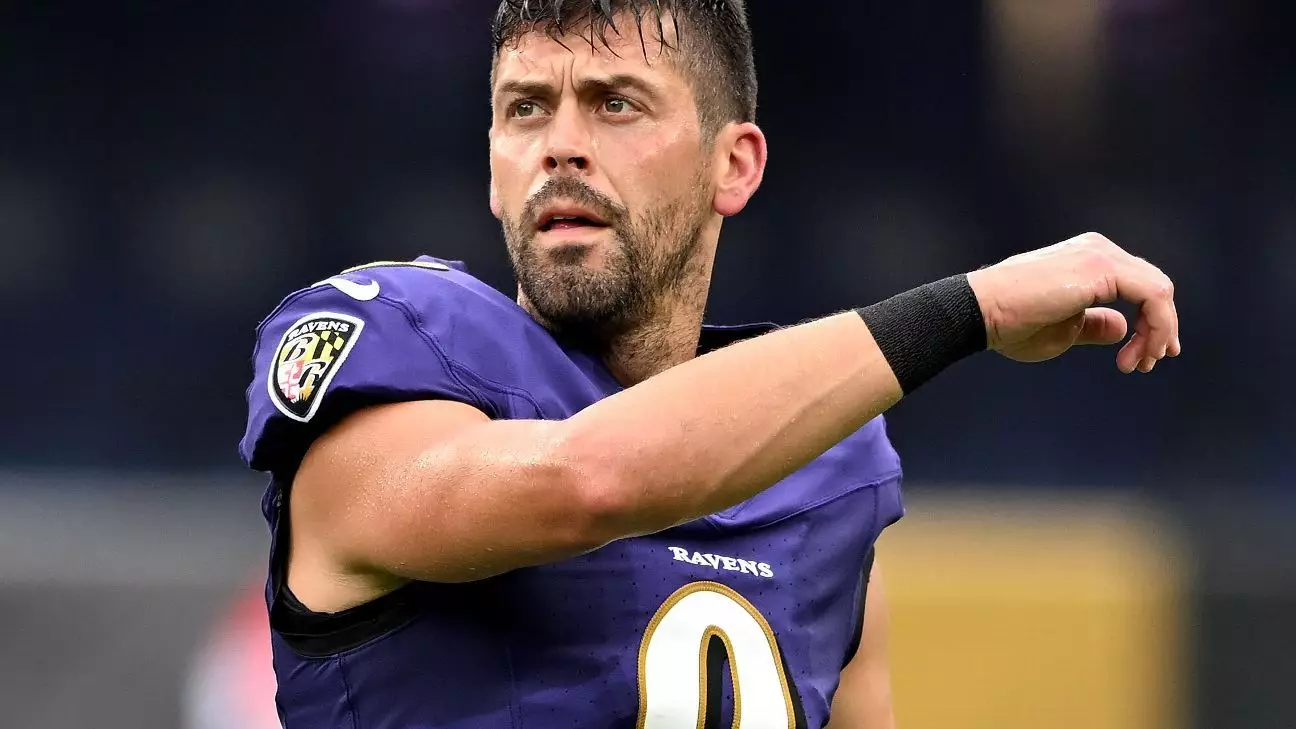Justin Tucker, once revered as one of the most reliable kickers in NFL history, now faces a public reckoning far beyond missed field goals or playoff moments. His 10-game suspension following allegations of sexual misconduct marks a sobering moment for the league, fans, and athletes alike. This case is more than the downfall of a once-admired player; it’s a glaring example of how professional sports handle accusations of personal misconduct, and whether the mechanisms in place truly deliver justice and accountability.
The suspensions handed down by the NFL, while a step in acknowledging misconduct, feel insufficient given the gravity of the accusations. Sixteen massage therapists across eight upscale wellness centers accused Tucker of inappropriate behavior spanning four years, disturbing in its consistency and scale. Yet, despite these weighty allegations, the punishment—a 10-week suspension—seems alarmingly lenient, especially for a figure of Tucker’s prominence who has long enjoyed the benefit of doubt.
A System Struggling to Balance Transparency and Protection
The NFL’s decision to allow Tucker to remain a free agent, able to attend training camp and preseason before serving his suspension, further complicates the narrative. This liminal status seems to underscore an ongoing tension within the league: the struggle to balance the presumption of innocence, contractual freedom, and the imperative of protecting victims. Tucker’s agency in signing with any team, despite the suspension, risks minimizing the seriousness of the claims and might inadvertently send a message that talent can overshadow character.
Fans and critics alike grapple with this uneasy compromise. On one hand, the NFL must navigate legal constraints and ensure due process. On the other, it carries a moral responsibility to foster a culture of respect and safety, particularly towards those vulnerable to abuse within such high-pressure, male-dominated environments. Unfortunately, Tucker’s case reveals the league’s struggle to square these competing priorities effectively.
The Voices of the Victims: Beyond the Headlines
One of the most haunting aspects of this episode is the lingering pain of the alleged victims—massage therapists who have seen their professional and personal lives irrevocably altered. Comments from those who spoke with The Baltimore Banner expose the inadequacy of the punishment and the deep scars left by these incidents. “He got 10 weeks, and we have to deal with this the rest of our lives,” one therapist poignantly stated, underscoring the disproportionate aftermath borne by those affected.
Their grief and frustration highlight a broader societal issue: the challenge victims face in reclaiming their voice and dignity amid public skepticism and institutionally weak responses. Though some express relief that the league took action, the sense that justice falls short remains palpable. This underlines how professional sports often prioritize reputational risk management over restorative justice for victims.
Tucker’s Denials and the Culture of Defense in Sports
The steadfast denial from Tucker and his representatives adds another layer of complexity. His agent’s statement about standing by previous assertions and resolving matters to return to the field seems strategic, yet it arguably minimizes the gravity of the accusations and the impact on survivors. This defensive posture is not uncommon in high-profile sports scandals, often prolonging public anguish and eroding trust.
When legal representatives for the victims highlight Tucker’s refusal to apologize and attacks on credibility, it underscores a troubling culture within athletics—and beyond—where admission of wrongdoing is stigmatized, and victims face additional harm through public doubt and vilification. The NFL’s response could serve as a precedent; opting for transparency and victim-centered approaches over quiet settlements might better restore faith in the league’s commitment to ethical standards.
The Broader Implications for the NFL and Athlete Accountability
Justin Tucker’s suspension is emblematic of a deeper reckoning needed within sports leagues concerning misconduct. The NFL’s reaction exposes both progress and limits: while taking steps toward addressing personal conduct issues beyond on-field performance, the league still appears tethered to protecting its stars and commercial interests. The question remains whether stronger, more decisive consequences—combined with comprehensive preventative education—would mitigate future harm.
Moreover, this case challenges fans to reconsider their relationship with athletes. The tendency to idolize sports heroes can blind us to their flaws and the realities behind image management. Recognizing the human complexities of athletes does not excuse misconduct; rather, it demands stricter accountability and an environment where victims feel empowered and supported.
In the pivotal balance between redemption and accountability, the NFL and sports culture writ large must move beyond superficial penalties and public relations maneuvers. Justin Tucker’s saga reflects a critical crossroads: will the league invest in genuine cultural change that prioritizes respect and justice, or will it continue to let talent overshadow the imperative for moral responsibility? The answer will reverberate far beyond the gridiron.

Leave a Reply